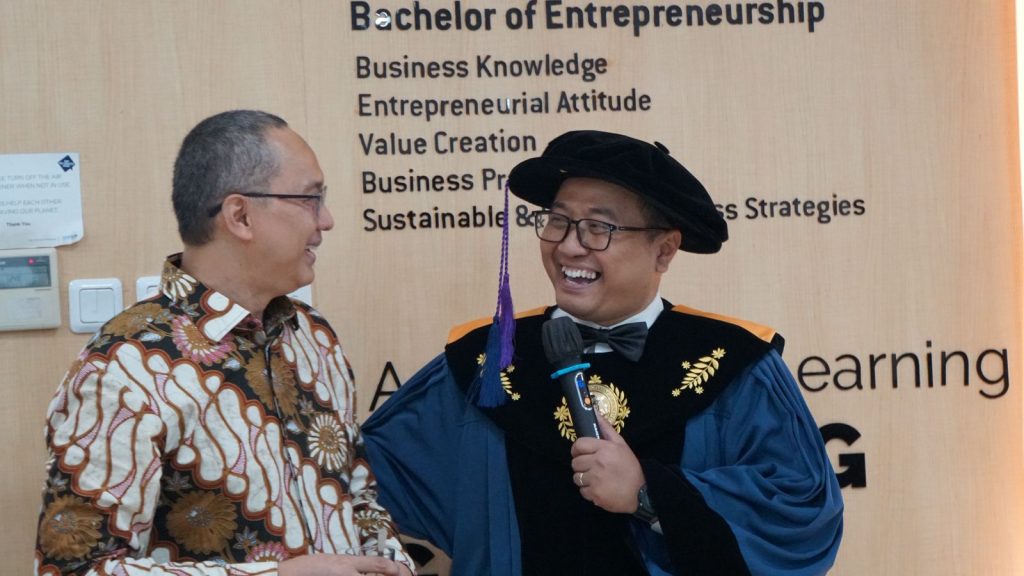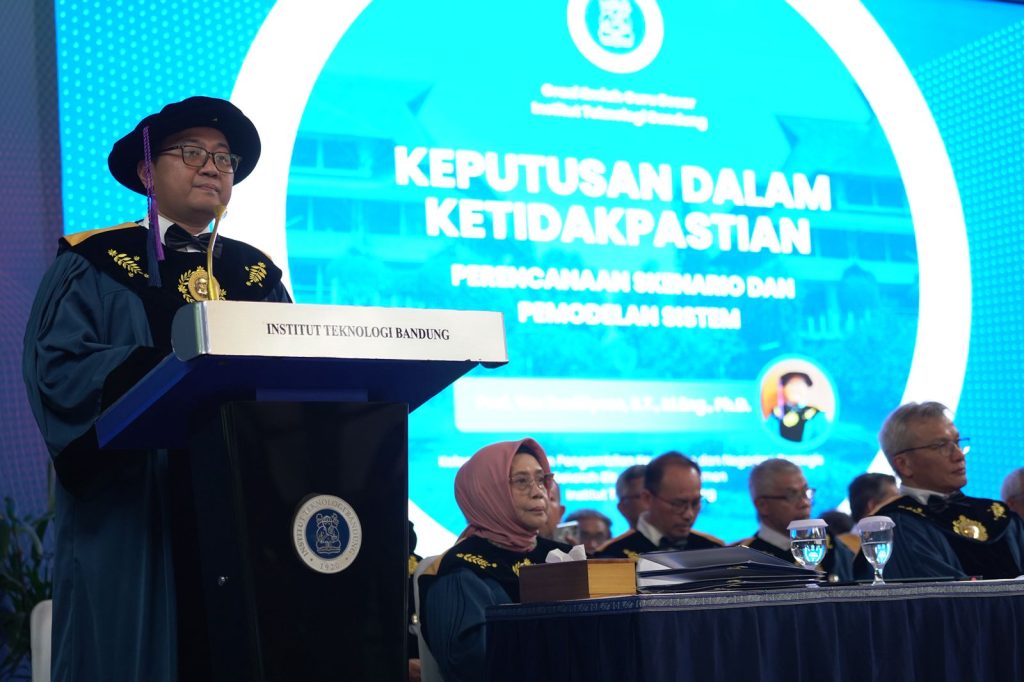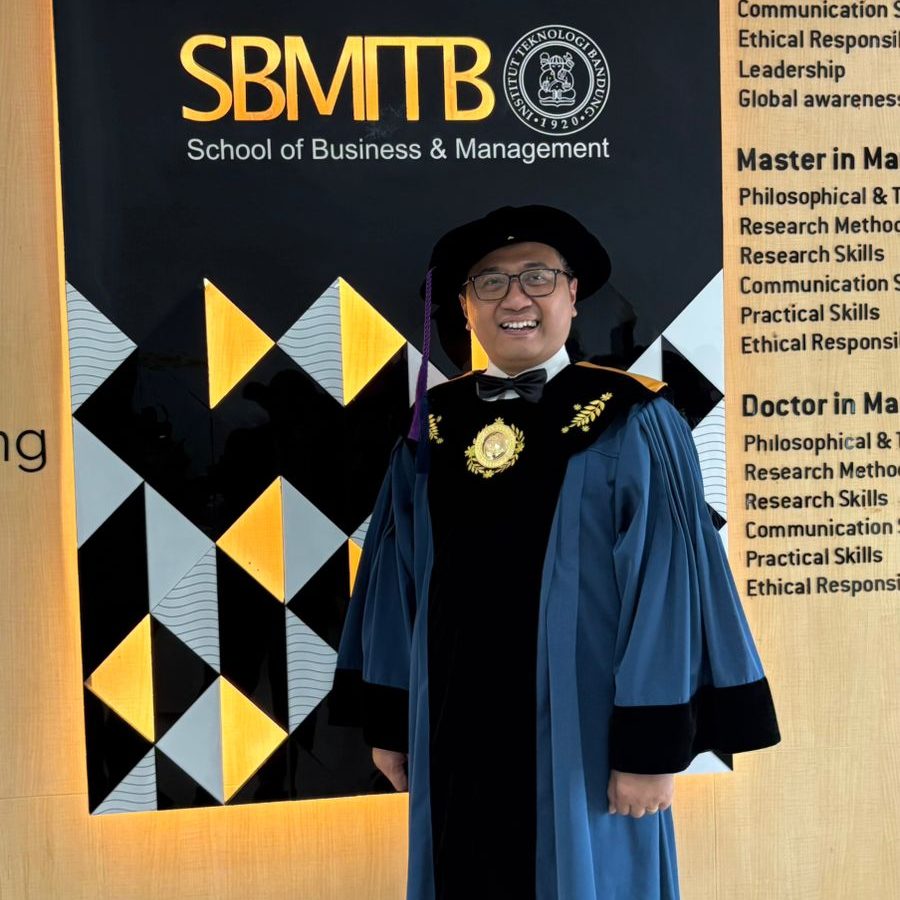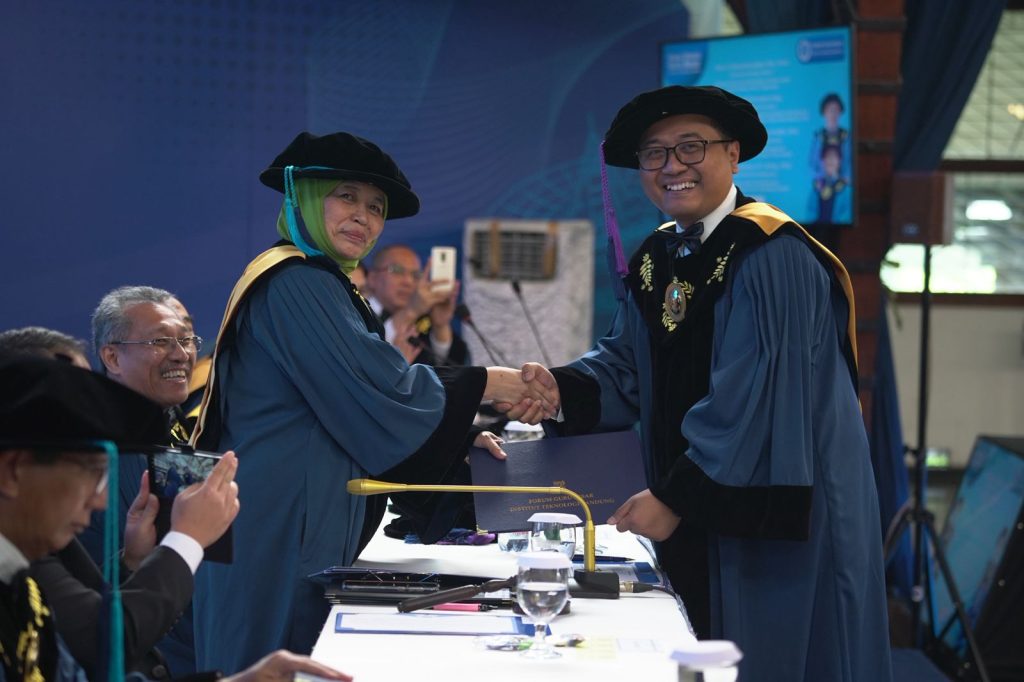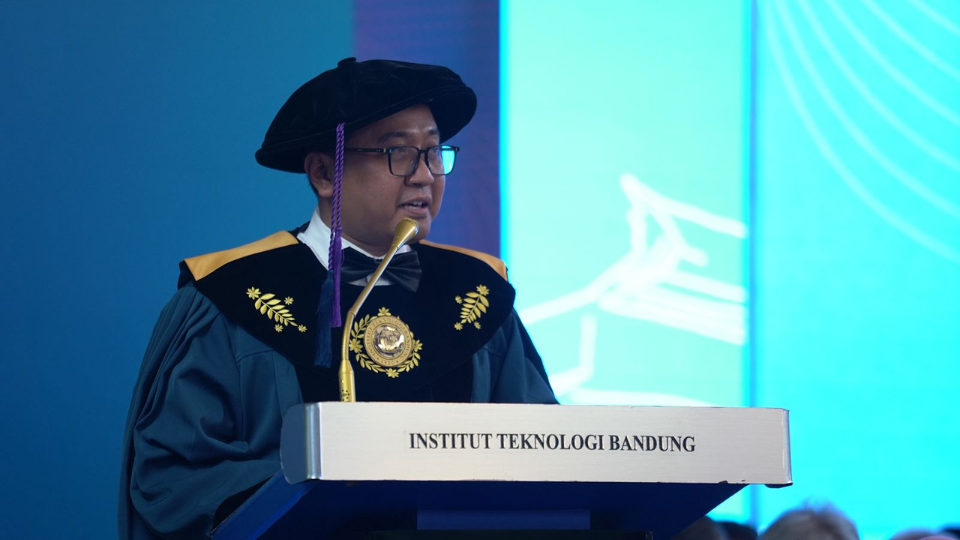Professor Yos Sunitiyoso, S.T., M.Eng., Ph.D., a lecturer at the SBM ITB, and an expert in Decision-Making and Strategic Negotiation (KK DMSN), delivered a scientific oration titled “Decision-Making in Uncertainty: Scenario Planning and System Modeling.”
Prof. Yos currently serves as Director of Downstreaming & Partnerships at the Directorate General of Research and Development, Ministry of Higher Education, Science, and Technology. As an academic, he has authored more than 50 Scopus-indexed articles, holds an H-index of 13, and has a SINTA score of 20. In 2024, he received the ITB Award in the Research and Innovative Work category for his significant contributions.
During his oration, Prof. Yos emphasized the importance of systematic thinking in navigating an increasingly uncertain world.
“In making business decisions, there are two key considerations: first, how to do the right thing, and second, how to do the thing right,” he stated.
“Inquiry involves identifying leverage points and developing interventions through systematic investigation. In this oration, I present two main approaches to inquiry: scenario planning and dynamic modeling,” he explained.
In discussing scenario planning, Prof. Yos referred to the Future Cone Framework, which helps detect emerging signals and anticipate various possible futures. He cited a study titled “Anticipating the Future of Capital Market and Investment Climate in Indonesia: A Scenario Personarrative Approach”, which examined external influences such as regulatory roles and investor behavior.
Regarding the dynamic modeling approach, he demonstrated how modeling and simulation enable decision-makers to quickly, cost-effectively, and with reduced risk explore different problem scenarios.
“Modeling is the process of creating a representation of the construction and operation of a desired system. Simulation, meanwhile, is the imitation of a real-world process or system over time,” he said.
He illustrated this method through the study “Port Performance Factors and Their Interactions: A Systems Thinking Approach,” which explored investment scenarios in port infrastructure. The findings revealed that investment in infrastructure and service systems (I&SS) significantly improved port performance, resulting in reduced dwell time and ship congestion.
In conclusion, Prof. Yos asserted that decision-making plays a pivotal role in both short-term performance and long-term success. He emphasized that effective decision-making requires not only focusing on outcomes but also employing systemic and strategic approaches to achieve them.
Scenario planning and modeling, he noted, are proven tools for managing uncertainty. Their real-world applications enable organizations to holistically identify risks and opportunities, ultimately enhancing decision quality and organizational resilience.
At the end of his oration, Prof. Yos expressed heartfelt gratitude to his family, the Ministry of Education, Culture, Research, and Technology (Kemdikbudristek), ITB, the professorial recommendation team, KK DMSN, SBM ITB faculty, and all partners and colleagues who have supported his academic and research journey.
